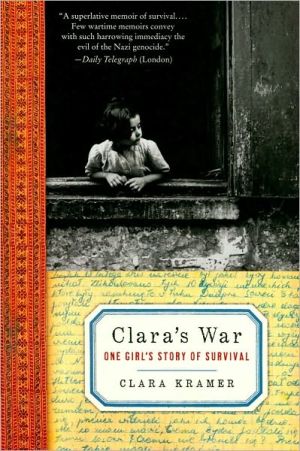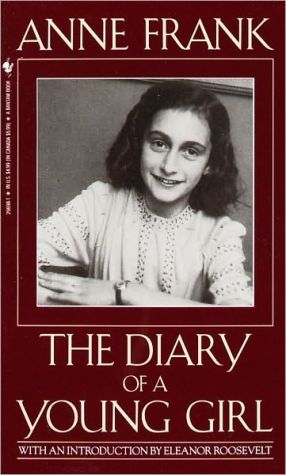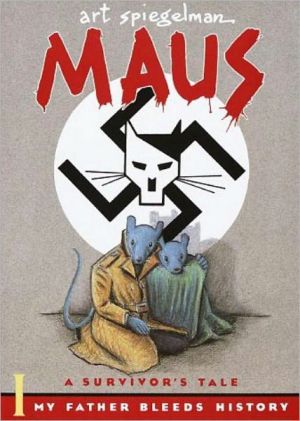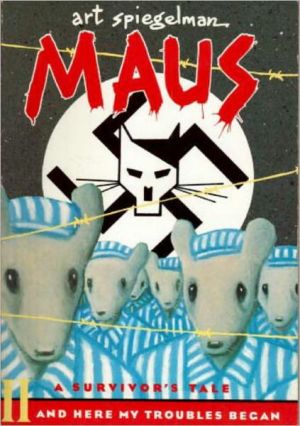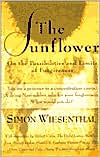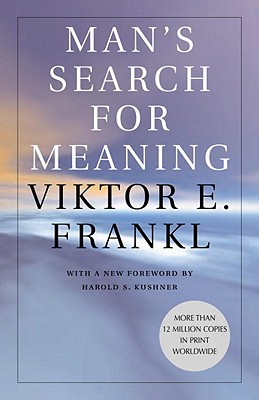Clara's War: One Girl's Story of Survival
This heart-stopping story of a young girl hiding from the Nazis is based on Clara Kramer's diary of her years surviving in an underground bunker with seventeen other people.\ Clara Kramer was a typical Polish-Jewish teenager from a small town at the outbreak of the Second World War. When the Germans invaded, Clara's family was taken in by the Becks, a Volksdeutsche (ethnically German) family from their town. Mrs. Beck worked as Clara's family's housekeeper. Mr. Beck was known to be an...
Search in google:
This heart-stopping story of a young girl hiding from the Nazis is based on Clara Kramer's diary of her years surviving in an underground bunker with seventeen other people. Clara Kramer was a typical Polish-Jewish teenager from a small town at the outbreak of the Second World War. When the Germans invaded, Clara's family was taken in by the Becks, a Volksdeutsche (ethnically German) family from their town. Mrs. Beck worked as Clara's family's housekeeper. Mr. Beck was known to be an alcoholic, a womanizer, and a vocal anti-Semite. But on hearing that Jewish families were being led into the woods and shot, Beck sheltered the Kramers and two other Jewish families. Eighteen people in all lived in a bunker dug out of the Becks' basement. Fifteen-year-old Clara kept a diary during the twenty terrifying months she spent in hiding, writing down details of their unpredictable life from the house's catching fire to Mr. Beck's affair with Clara's neighbor; from the nightly SS drinking sessions in the room above to the small pleasure of a shared Christmas carp. Against all odds, Clara lived to tell her story, and her diary is now part of the permanent col-lection of the United States Holocaust Memorial Museum in Washington, D.C. Publishers Weekly Polish-born Kramer, president of the Holocaust Resource Foundation at Kean University, was a teenager when her family and others hid from the Nazis in a secret bunker, rescued by a former housekeeper and her husband, a reputed drunken anti-Semite who turned out to be an avenging angel. Kramer's extensive recollections range from a liaison that threatened the household and daily squabbles in the tomblike underground quarters where food was scarce to their fear of discovery by the Nazis and the shock and desperation of learning about relatives and friends who had been killed. Her sister was sold out by a neighbor boy for a few liters of vodka. This vividly detailed and taut narrative is a fitting tribute to the bravery of victims and righteous gentiles alike. 8 pages of b&w photos. (Apr. 21)Copyright © Reed Business Information, a division of Reed Elsevier Inc. All rights reserved.
From Chapter 14: We Are Just Starting to Suffer (23 April to May 1944)\ \ The soldiers [SS who had requisitioned a room in the Becks’ house] would be sleeping right above the bunker where Lola, Gedalo, Kuba, Artek and the Steckels slept. Unlike the trainmen, whose names I hadn’t discovered in the two months they’d been with us, within minutes I learned that the soldiers were Norbert, Dieter, Richard and Hans. With six Germans living above us, water, food, the pails would all be impossible. If the soldiers were here, the trainmen would be gone, and vice versa. It was like one of those theatrical farces where characters run in and out of doors, barely missing each other in a ridiculous chase, except the comedy going on above our head had lethal consequences.\ \ As soon as Norbert’s duffel landed on the floor, he fiddled with the radio until he’d found a station that played popular music and light opera. He started singing right away and suddenly reverberating through the floorboards was a clear and vibrant tenor. Most people when they sang to themselves, especially when others were around, were at least a little inhibited, even if they adored their own voices. But Norbert was singing to the audience in the balcony. He knew, it seemed, every song on the radio. My life couldn’t have felt any stranger to me at that moment. I didn’t know who Norbert was, what he looked like, where he came from, or whether he would turn out to be one of those Germans who’d regale the Becks with his proficiency in killing Jews. All I knew of him was that he had a voice that people would have paid money to hear and I had been moved by musicin a way that had not happened since Mania sang at her concert three springs ago. I didn’t want to love his voice…. How dare a German have such a beautiful voice when his finger was on the trigger of a gun and there was a Jew in his sights.\ \ Mama was so upset by the arrival of so many soldiers upstairs, she fainted. Yet neither I nor Papa dared move to help her because we were afraid of being heard, despite the noise upstairs. Life in the bunker had trained me to resist almost every natural impulse I had, so I watched the rise and fall of her chest as if she were in a pleasant sleep, and hoped she would come out of her faint without making any noise at all.\ \ The second after all of them had gone out, Beck came down and said that God was sending an army to watch over us and keep suspicion far from our door. I didn’t know how much longer I could believe in Beck’s luck. I tried to see in the dim light if he believed his own words or was just encouraging us. But I couldn’t see his eyes, and then there was a knock on the door, and Beck ran back up. The groaning trapdoor closing was covered by the sound of Beck’s feet rushing to get the door. The hotel was full. I didn’t see how they could fit anyone else. But it wasn’t another guest. It was a Nazi policeman.\ \ He was telling Beck to come with him to the chief of police. Immediately. Beck hadn’t been ordered to the police station for months and months and this policeman was a stranger. Beck went away whistling, but we didn’t believe it. One onerous reason after another swept through the bunker. He had been reported for hiding Jews; for dealing with the partisans; for selling English pounds on the black market; for stealing vodka, and any of the other treasonable sins. Otherwise we would have heard laughter, gossip, an easy-going greeting and the reason Beck had been called. I prayed for Beck the way I prayed for Uchka, for Mania, for Zygush and Zosia. I prayed for him in the way I prayed for my dearest loved ones.\ \ Waiting for Beck and our fate in darkness would have been too frightening to bear. Since the initial bombing of Lvov last week, we never knew if we’d have electricity or not. I didn’t know if Beck would come back unharmed, or the police would break down the door and kill us. Ever since Beck had been taken away, we had all been so on edge that I feared we were going insane. Mr Patrontasch was calculating seconds, minutes, hours and days in his book again. Gedalo was writing madly, but wouldn’t show it to anyone. Lola had her hand to her mouth, suppressing her laughter. The more everyone looked at her, begging with their eyes for her to stop, the harder it was. She turned her face to the wall until she calmed down. It had to be hysteria because there nothing funny going on this morning. The Steckels fingered the cyanide capsules around their necks as they always did when we were threatened. Zosia grabbed a pillow and put it over her own face and started to cry silently. And there was Mama in the dirt. At least we had light this morning.\ \ When we were alone in the house again, I asked Lola to tell us why she had been laughing so hard.\ \ ‘I was looking around the bunker and saw that everybody’s hair had turned white or grey and so I didn’t feel so bad about my hair.’\ \ . . .\ \ Beck must have run into the soldiers because he came back into the house with them. He was whistling ‘All’s Well…’ At least we knew Beck was all right and we were not dead yet. I knew we’d have to wait until the soldiers and the trainmen next went out before we found out the reason Beck was called by the police chief.\ \ When he was finally able to come down, he told us that they wanted him to stand guard at the train station in addition to his regular job. He was still a trusted Volksdeutscher, and a vital part of the local German war machine. He was given a new gun, and he said he would give one of his guns to us as soon as he had the chance. I didn’t know if there was a man in our bunker who had actually fired a weapon. But Beck was relieved and so were we. He also told us that the soldiers promised him they wouldn’t be a bother to the Becks because they would be spending most of their time at their jobs, which were preparing the German motor pool for retreat. As soon as I had heard what they’d be doing, I knew they’d be here until the bitter end. The arrival of these soldiers caused so many changes for us that I felt despite all the suffering of the past 17 months, in so many new ways our suffering had just begun.
Prologue 11 My Grandfather 132 A Place to Hide 403 The Housekeeper 624 A Gift from Mr Beck 755 I Go to the Ghetto 966 The Final Solution 1107 The Arrival 1338 18 April 1529 The Love Affair 16510 Days of Awe and Atonement 18311 A Year Underground 19912 Valentine's Day 21913 The SS Move In 23414 We are just Starting to Suffer 26215 I'm Losing Hope 27616 The Exodus 28817 Zolkiew without Mania 30418 The Diary 319Epilogue: Life Goes On 325Acknowledgements 337
\ Publishers WeeklyPolish-born Kramer, president of the Holocaust Resource Foundation at Kean University, was a teenager when her family and others hid from the Nazis in a secret bunker, rescued by a former housekeeper and her husband, a reputed drunken anti-Semite who turned out to be an avenging angel. Kramer's extensive recollections range from a liaison that threatened the household and daily squabbles in the tomblike underground quarters where food was scarce to their fear of discovery by the Nazis and the shock and desperation of learning about relatives and friends who had been killed. Her sister was sold out by a neighbor boy for a few liters of vodka. This vividly detailed and taut narrative is a fitting tribute to the bravery of victims and righteous gentiles alike. 8 pages of b&w photos. (Apr. 21)\ Copyright © Reed Business Information, a division of Reed Elsevier Inc. All rights reserved.\ \ \ \ \ Library JournalBased on her wartime diary, which she kept while hiding in a basement in Poland, Kramer's book vividly recalls the tensions within her hidden community after the Nazis overtook the town of Zolkiew in 1942. Of particular interest are revelations about the family who hid the Kramers, particularly how an anti-Semitic Polish householder demonstrated great courage in shielding Jews in his basement. Kramer, in her eighties, now lives in New Jersey.\ —Frederic Krome\ \ \ \ Kirkus ReviewsBesieged Jews are saved by the most unlikely of heroes in Kramer's Holocaust memoir. The author was 12 in 1939, when the Hitler-Stalin Pact divided up Poland and the Soviets marched into her hometown of Zolkiew, near Lvov. Her loving, comfortable family was soon broken up by the brutal NKVD, which arrested her grandfather and all other former Polish officers. He probably died in the chaos following the Nazi invasion of the Soviet Union in 1941, which ended the pact and brought even more terrible times to Zolkiew. Abetted by native Poles and Ukrainians, the Wehrmacht, the SS and the Gestapo rousted the town's Jews from their homes, deported and murdered them. Her desperate father and two neighbors built a crawl space under one of their houses, but then all Jews were ordered to relocate to the ghetto, which they knew meant certain death. Astonishingly, a man named Beck, a Pole who was an ethnic German-as well as a vocal anti-Semite, an adulterer and a drunk-agreed to help them. He requested the home with the crawl space (the Nazis allotted fellow Aryans the property of displaced Jews), spread a rumor that they had fled and hid the beset, disoriented families beneath the floor of the little house. Cramped and crowded, the grimy bunker was just four-feet high until someone dug a hole in which to stand erect. Among the rules-no talking, no complaining. In their burrow, they could hear boots, gunfire, shouted orders and last cries. They heard the trainmen and German soldiers billeted in the rooms above them. Throughout all this, Beck, often with a bottle in his hand, was constant and kind, providing food and protection for a year and a half. Kramer's sister did not survive. Neither did 99 outof every 100 Jews in Zolkiew. But this surprisingly honorable, truly righteous man saved Kramer and 17 others. The number 18, it should be noted, signifies "life" in the Jewish tradition. Lucidly told with deeply etched personality sketches, thanks to the author's use of her teenage diary, now in the U.S. Holocaust Memorial Museum. New York regional author appearances. Agent: Susanna Lea/Susanna Lea Associates\ \ \ \ \ Daily Telegraph (London)"A superlative memoir of survival. . . . Few wartime memoirs convey with such harrowing immediacy the evil of the Nazi genocide. . . . Her book is a model documentary."\ \ \ \ \ John Clare"Utterly compelling. At times, the tension is as high as in any thriller designed to stop your heart."\ \
